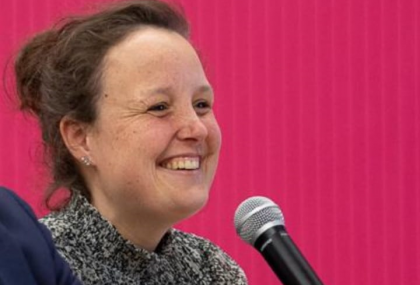
Looking back at 8 years of being part of CIB, can you highlight some of the major milestones or achievements that the network accomplished during this time?
I joined the CIB working group secretariat in 2015, in the months prior to the CIB annual meeting in The Hague that year. We gathered an enthusiastic group in the building of the VNG and I felt immediately inspired by the network - it was so interesting to hear about the experiences of others, and to see the similarities between our organisations. Throughout the years, the CIB leadership and secretariat have been able to keep this group together and to let it gradually expand. The network has become a more global network, with representation from almost all regions, and has partnered with various other organisations active in development. These strategic partnerships mostly came about during the renewal process of the UCLG-CIB policy paper on development cooperation of local governments of 2013. The CIB team found it important to not only do this exercise with 'ourselves', but also with strategic partners. It led to a new all-round paper, which was adopted at the UCLG world congress in 2022, in Korea. I am particularly proud of this result, even though it still needs a lot of follow-up of course.
Of course there were many other milestones, including our first CIB gender publication, successful collaborations with the UCLG learning and research teams on SDGs, geographic coordination calls together with CIB members and the PLATFORMA team, and all the fantastic CIB annual meetings.
What were some of the biggest challenges the CIB network faced in these 8 years and how was the network able to overcome these challenges collectively?
The COVID times asked for a new way of working of our member organisations, and of CIB as well. We were unable to meet in-person and had to organise virtual CIB meetings instead. It was not possible to network like we do at in-person meetings, but we were able to reach a much larger audience for these meetings, with almost 150 people at one of these online CIB annual meetings. This was probably important ground work for the now much more global membership base. We also worked on a CIB position paper on COVID, following discussions between a group of directors of CIB member organisations, on the continued need for local government development cooperation. I very much enjoyed writing that paper, and I hope it was inspirational to many.
Reflecting back upon your time as part of the CIB secretariat, what advice do you have for the network and what do you think the future has in store for CIB?
Even though we are able to do a lot online, the strength of the CIB working group lies in connections, between people. Therefore, meeting in-person at least once a year remains key. Aside from meeting once a year, member engagement between the meetings is also crucial - the CIB leadership and secretariat, and the UCLG world secretariat, can and should play a facilitating role, but members should be in the drivers seat and direct where CIB is going. After the well-attended CIB annual meeting 2023 I feel very confident that members are willing to further commit, in connection to other relevant partners and networks. This will most likely also further increase the impact of CIB.
I will definetely keep following the network and look forward to staying in touch with everyone! Thank you for the wonderful collaboration throughout the years!
